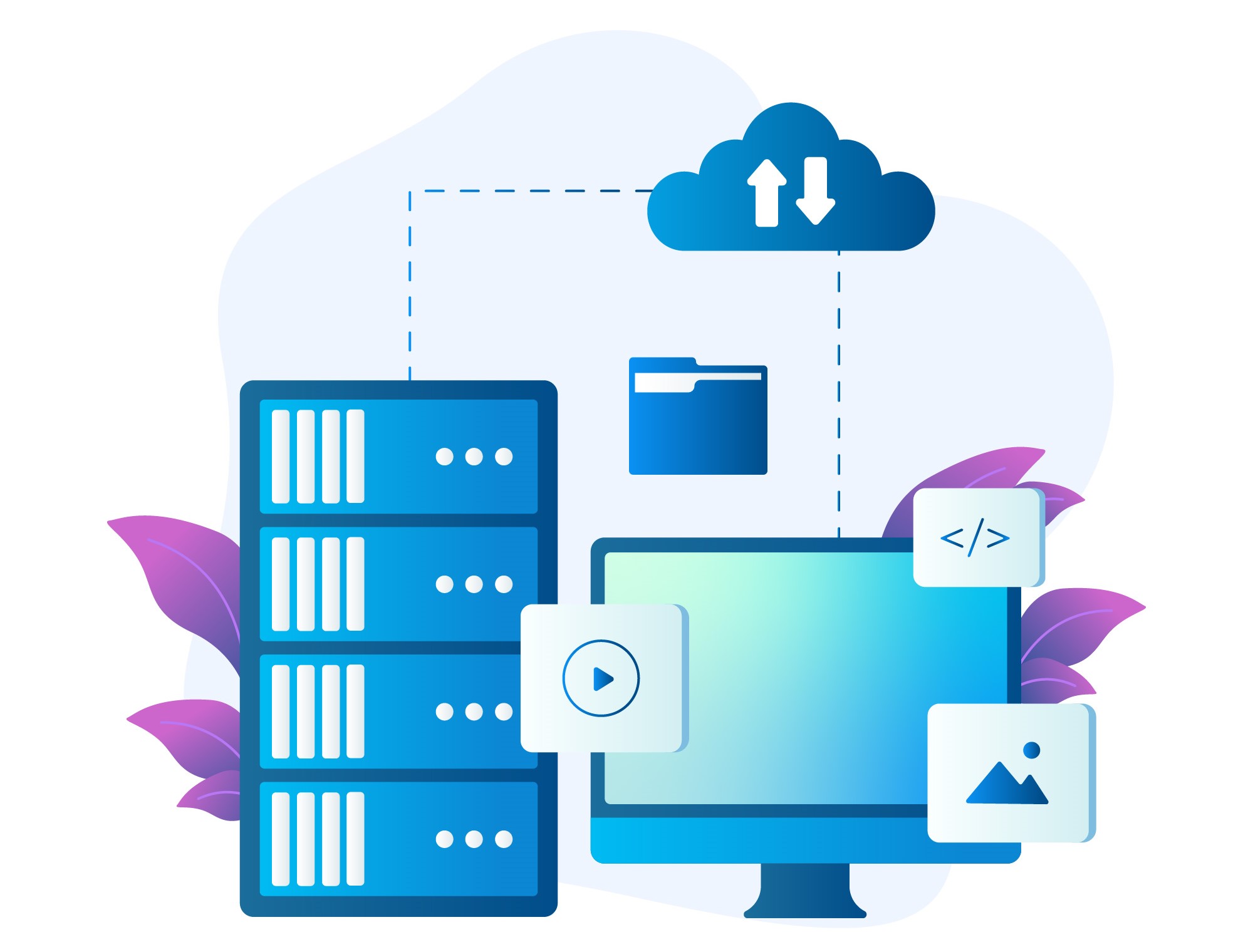Cloud Security Assessment
As businesses increasingly rely on cloud-based systems, ensuring robust data protection is paramount. At persistent infotech, we offer comprehensive cloud security assessment services to help organizations identify vulnerabilities, mitigate risks, and fortify their cloud infrastructure. Our proactive approach to cloud security enables businesses to safeguard valuable data and resources, while also ensuring compliance with industry regulations.
Defining cloud security assessment: Cloud security risk assessment is a critical evaluation of potential risks and vulnerabilities associated with the utilization of cloud-based systems. It plays a vital role in helping businesses ensure the proper protection of their data when stored on remote servers. Imagine a scenario where a company decides to migrate its data to the cloud to benefit from increased flexibility and scalability. However, they recognize the importance of ensuring the security of their data in this new environment. To address this concern, the company conducts a cloud security risk assessment. They carefully evaluate potential risks and vulnerabilities associated with their cloud-based systems. Through this assessment, they identify areas such as weak access controls, inadequate encryption practices, or insufficient incident response mechanisms. Armed with this knowledge, the company takes proactive steps to mitigate these risks, implementing robust security measures and enhancing their cloud infrastructure's protection. By conducting regular risk assessments, the company demonstrates their commitment to data security, instills trust in their customers, and ensures the safeguarding of their valuable information in the cloud.
Why cloud security assessment matters : Cloud computing has revolutionized the way businesses operate, offering scalability, flexibility, and cost-efficiency. However, as organizations increasingly rely on cloud services, it becomes imperative to assess and evaluate their performance, security, and compliance. Cloud service assessment plays a critical role in ensuring that businesses can maximize the benefits of the cloud while mitigating potential risks and vulnerabilities.
Why cloud security assessment matters :
A thorough cloud service assessment enables businesses to evaluate the performance of their cloud infrastructure. By analyzing factors such as response times, uptime, scalability, and resource allocation, organizations can identify areas for improvement and optimize their cloud resources. This ensures that applications and services perform optimally, delivering a seamless user experience and meeting business objectives.
Security Enhancement:
Cloud service assessment is vital for enhancing security in cloud environments. It helps identify vulnerabilities, misconfigurations, and access control issues that could expose sensitive data to unauthorized access or breaches. Through comprehensive assessments, organizations can implement robust security measures, including encryption, access controls, and multi-factor authentication, to safeguard their data from evolving threats.
Risk Mitigation:
Assessing cloud services allows businesses to identify and mitigate potential risks and vulnerabilities. By conducting regular assessments, organizations can proactively address emerging threats, assess compliance with industry regulations, and implement appropriate risk mitigation strategies. This proactive approach minimizes the likelihood of security incidents, data breaches, and potential financial and reputational damage.


Compliance Adherence:
Cloud service assessments assist organizations in ensuring compliance with industry regulations and data protection laws. By evaluating cloud service providers' security controls, data storage practices, and data handling procedures, businesses can ensure adherence to relevant compliance requirements. This is crucial, especially in industries with strict regulatory frameworks such as healthcare, finance, and legal sectors.
Cost Optimization:
Cloud service assessments help businesses optimize their cloud-related costs. By evaluating resource utilization, identifying underutilized or overprovisioned instances, and implementing cost management strategies, organizations can streamline their cloud spend. This ensures that businesses only pay for the resources they need, resulting in significant cost savings.
Benefits of Our Cloud Security Assessment Services:
- Comprehensive Risk Identification:
Our assessment process covers all critical areas of cloud security, providing you with a holistic view of potential risks and vulnerabilities specific to your environment.
- Proactive Risk Mitigation:
We help you proactively address identified risks by recommending and implementing robust security measures tailored to your organization's needs.
- Compliance Assurance:
With our expertise in regulatory requirements and industry best practices, we ensure your cloud infrastructure aligns with relevant security standards, enabling you to maintain compliance.
- Enhanced Data Protection:
By identifying and rectifying misconfigurations and weaknesses in access controls, we fortify your data protection mechanisms, minimizing the risk of unauthorized access or data breaches.
- Trust and Confidence:
Demonstrating a commitment to cloud security through regular assessments fosters trust and confidence among your stakeholders, including customers, partners, and regulators.
Persistent’s CSA Services: our methodology at persistent for cloud security assessment contain many points which could be very fruitful for any business requiring cloud service assessment. Let us have look at the steps we will follow here as general outline Here is a general outline of the methodology:

Define Assessment Objectives
Clearly define the goals and objectives of the assessment, including specific areas to be assessed such as performance, security controls, compliance, and cost optimization.

Gather Information
Collect relevant information about the cloud environment, including the infrastructure, applications, data storage practices, access controls, and security measures in place.

Identify Assessment Scope
Determine the scope of the assessment, considering the specific cloud services, applications, or regions that will be evaluated. Define the assessment boundaries and limitations.

Evaluate Performance
Assess the performance of the cloud environment, considering factors such as response times, availability, scalability, and resource utilization. Measure performance against defined benchmarks or service level agreements (SLAs).

Conduct Security Analysis
Evaluate the security measures in place, including network security, access controls, encryption, vulnerability management, and incident response capabilities. Identify any vulnerabilities, misconfigurations, or potential risks that could compromise data security.

Assess Compliance
Review the cloud environment's compliance with relevant industry regulations, data protection laws, and security standards. Evaluate data handling practices, privacy controls, and security governance processes.

Analyze Cost Optimization
Evaluate the cost-effectiveness of the cloud environment, including resource utilization, optimization opportunities, and cost management strategies. Identify areas for cost optimization and recommend appropriate measures.

Report Findings
Document the assessment findings, including strengths, weaknesses, risks, and recommendations. Provide a comprehensive report outlining the assessment results, actionable insights, and suggested improvements.

Provide Recommendations:
Based on the assessment findings, provide recommendations and actionable steps to address identified issues, improve performance, enhance security, ensure compliance, and optimize costs.
Follow-Up and Continuous Improvement: Monitor the implementation of recommended actions, conduct regular follow-ups, and reassess the cloud environment periodically to ensure continuous improvement and ongoing security and performance optimization.


